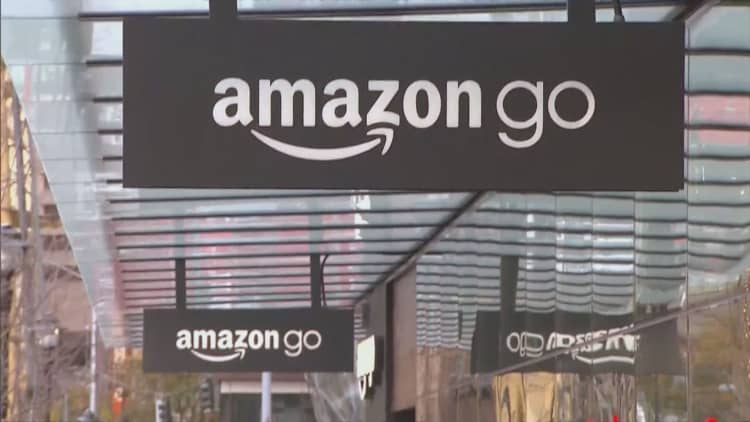Small food companies are gaining space in millennials' shopping carts, but hope for big companies is not completely lost, a research note from Goldman Sachs and Conde Nast says.
Sales for the leading packaged food companies that Goldman tracks have been disappointing, with the first quarter of 2017 seeing, in aggregate, an sales decline of 1.6 percent — which is an all-time low for growth.
Big brands still dominate, driving 80 percent of industry sales, according to the report. But smaller brands have gained momentum, gaining share in 62 percent of the top 50 packaged food categories.
Distributing and advertising products is easier than ever, the note said. That's allowed more companies to enter the market and easily reach consumers, particularly millennials. While newcomers have benefited, big brands have spent more than a decade trying to cut margins, leading consumers to consider their products "over-engineered," the note said.
Some of the up-and-coming brands are run by entrepreneurs, including Kind, Clif, and Quest bars, Amy's Kitchen in the frozen food aisle, and Siggi's yogurt, among others.

Millennials haven't completely ditched big brands, though. Researchers found those surveyed still bought products like Coca-Cola, Heinz Ketchup and Doritos.
Goldman Sachs and Conde Nast's two favorite large companies are Mondelez, which produces Oreo, and Nestle, which has San Pellegrino, the most popular water brand among millennials. Its least two favorites are Campbell Soup because of numerous brands that "appear relatively disadvantaged" and Kraft Heinz because of "low brand support.
Goldman and Conde Nast gave the packaged food industry one reason to be optimistic: Millennials are approaching their prime buying years when they feed their growing families.
For food consumption, the sweet spot is between ages 35 and 44 years old, the report said, and the oldest millennials are turning 35 this year. Nielsen found that food sales increase 70 percent on a per capita basis as consumers move from the 20 to 34 range and enter the 35 to 44 grouping, according to Goldman's report.
"Assuming this relationship holds," the note said, "the math suggests that millennial consumers should drive the entirety of the industry's growth over the next decade."
Watch: Amazon will disrupt grocery stores next



